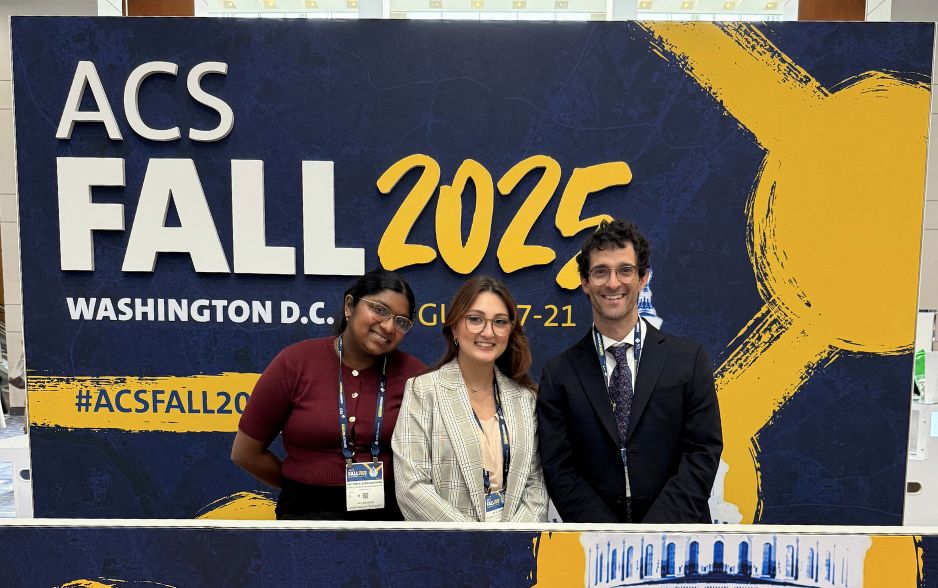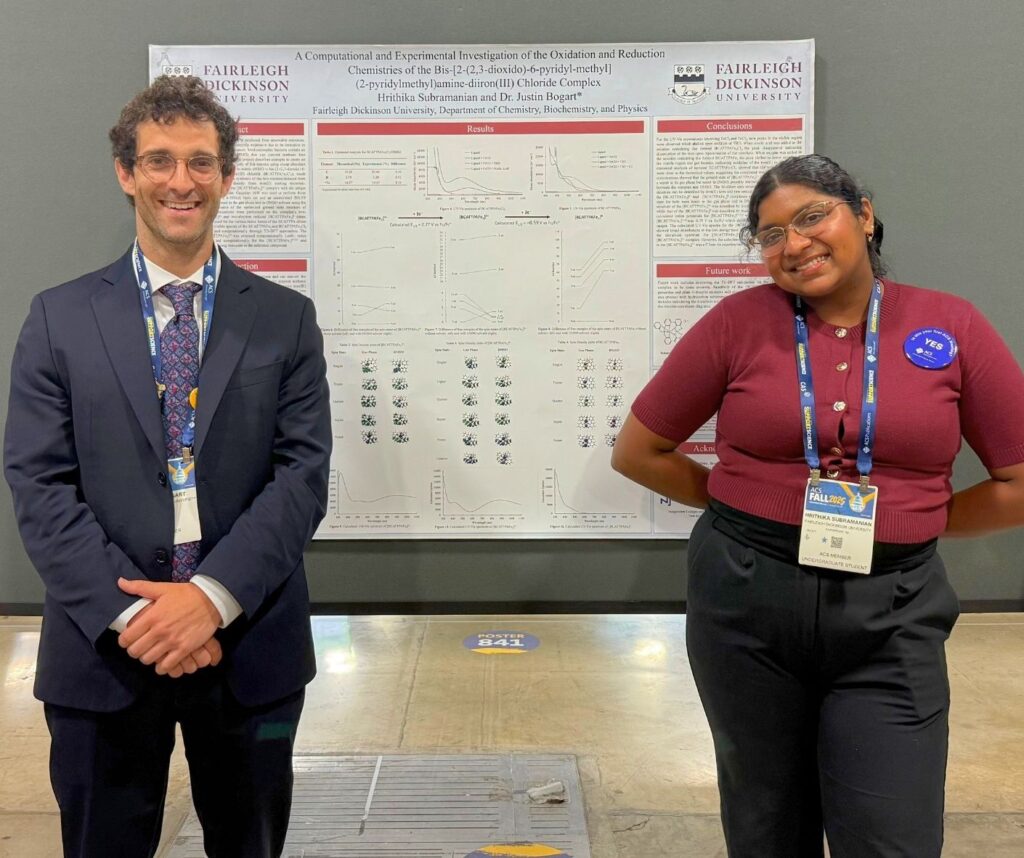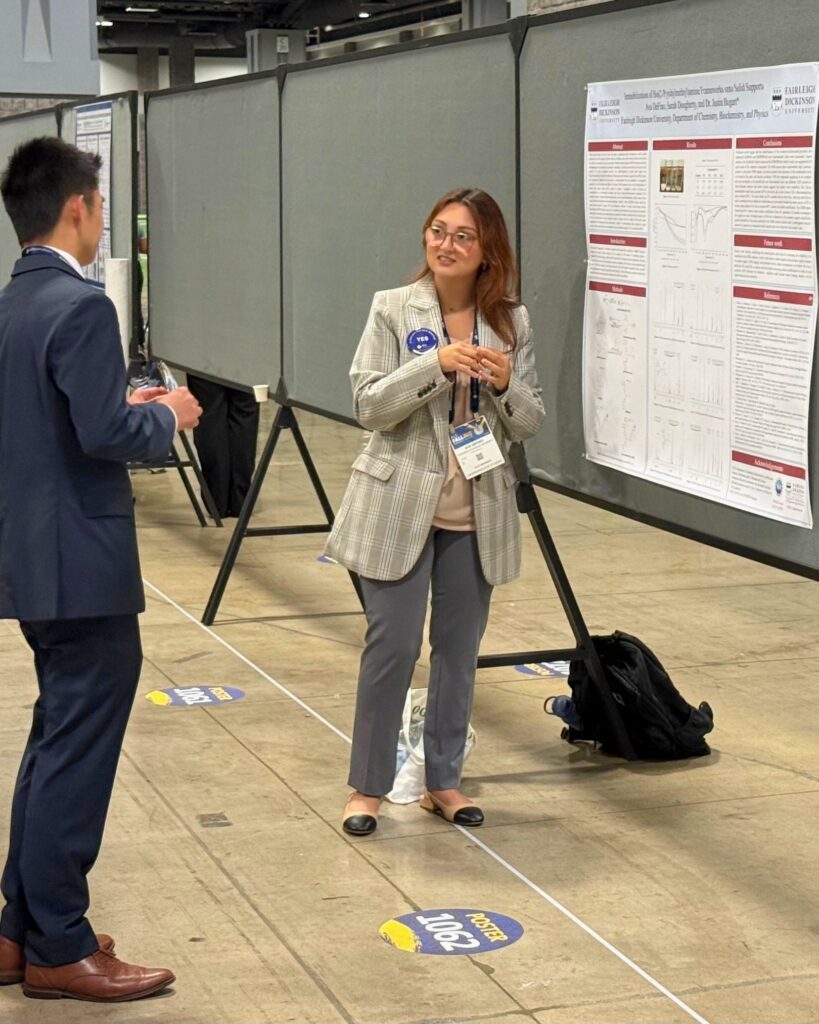FDU Students Present at the American Chemical Society Fall 2025 National Meeting and Exposition

From left, Hrithika Subramanian, Ava DeFino and Justin Bogart
September 3, 2025 — Students from FDU’s newly established Gregory H. Olsen College of Engineering and Science traveled with their research mentor Justin Bogart, associate professor of inorganic chemistry, to Washington, D.C., for the American Chemical Society (ACS) Fall 2025 National Meeting and Exposition. A gathering of one of the world’s largest societies of professional chemists, the meeting promoted scientific innovation, knowledge dissemination, and career advancement.
“It was a great experience presenting my research and interacting with other students from across the country. Attending this meeting also allowed me to connect with graduate schools and pharmaceutical companies,” said Hrithika Subramanian, a junior biology major (Flor).
Subramanian presented on her experimental and computational investigation into the oxidation and reduction chemistries of a diiron complex that she synthesized. This could potentially be a mimic to the active site of methane monooxygenase, an enzyme that converts methane into methanol.
“Presenting my research allowed me to network with peers across the country and interact with companies and industry members,” said Ava DeFino, a senior chemistry major (Metro). “Being able to promote my abilities through the poster presentation session was vitally important to proper networking and establishing an active position within the American Chemical Society.”
 DeFino presented her work involving the immobilization of bis(pyridylmethyl)amine binding sites onto the surface of silica to form materials that could bind iron or other metals. This could potentially function as heterogenous catalysts with increased recyclability to their homogeneous counterparts.
DeFino presented her work involving the immobilization of bis(pyridylmethyl)amine binding sites onto the surface of silica to form materials that could bind iron or other metals. This could potentially function as heterogenous catalysts with increased recyclability to their homogeneous counterparts.
The end goal of the research projects is to find newly efficient and less costly pathways for converting methane into methanol, which could have significant positive impacts to the energy sector and benefits to the environment. Therefore, the projects aspire to positively contribute to the greater community by forming a more sustainable future.